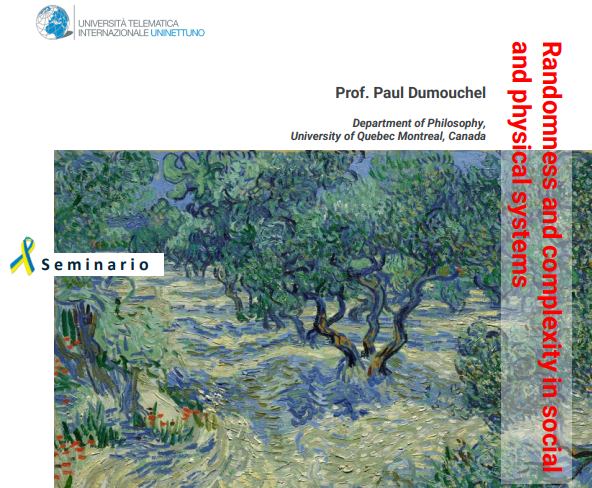
Giovedì 2 marzo alle ore 15 l'Università Telematica Internazionale Uninettuno presenterà il seminario dal titolo "Randomness and complexity in social and physical systems", a cura del Prof. Paul Dumouchel, Dipartimento di Filosofia dell'University of Quebec Montreal, Canada.
Per partecipare gratuitamente al seminario è possibile cliccare qui http://bit.ly/3y0Ad1b o inquadrare il QR Code presente nell'immagine dell'evento.
L'abstract dell'evento
One classical measure of complexity is that the complexity of system corresponds to the information which I lack in order to explain a system’s functioning and organization. Complexity corresponds to or measures this missing information, rather than it corresponds to how intricate or complicated are the relations between the different sub-parts of a system. Understood in this way complexity is essentially epistemic, subjective. It is not clear to what complexity so understood corresponds in reality (ontologically), since it essentially is a measure of my ignorance. Random, unpredictable events in this context indicate that the system I am observing is more complex than I thought, but that does not tell us how complicated or simple it really is, since randomness is a direct function of my ignorance. There is also an objective sense of complexity, one that is not ultimately epistemic. Girard in his mimetic theory argues that violence erases differences and this reduction of differences can be understood as equivalent to saying that it reduces complexity and it actually makes the system more predictable, though not it does not necessarily reduce the uncertainty of the social situation. His analysis provides an interesting way of thinking anew about the difference between subjective or epistemic complexity and real or objective complexity.
